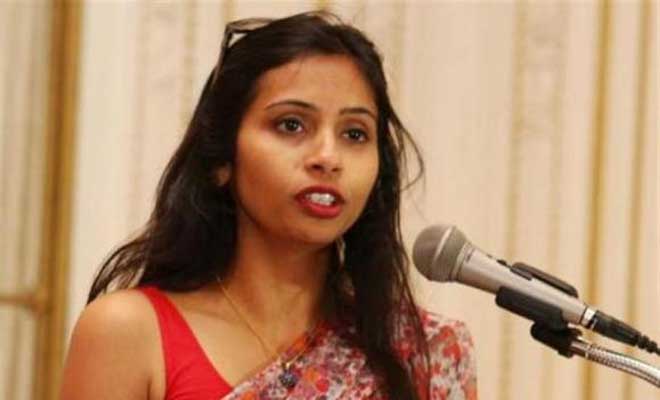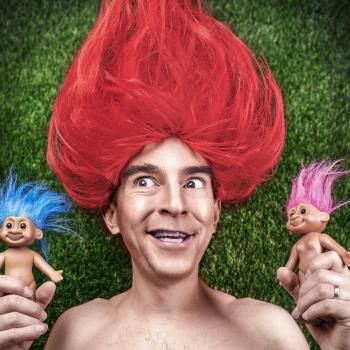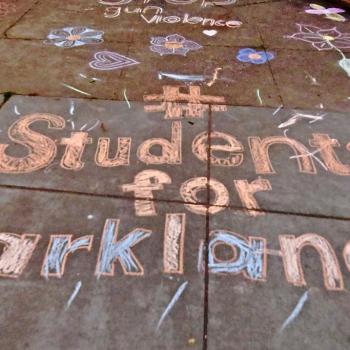There are so many sides to every story and all we know, as people who weren’t there, is what the media decides to tell us. That’s a recipe for disaster, in my opinion.
Whenever I hear a crazy story about something that happened and people are getting worked up about it, my first thought is, “There’s more to this story than what we’ve been told.”
Let’s take the example of the current situation with the arrest of Devyani Khobragade. This is a situation that is causing immense tension between India and America, yet the facts are extremely unclear and each side is being told something different.
- In India, apparently, the media is reporting that this Indian diplomat was strip searched in public by a man (which, I have to say, living in the U.S., that sounds ridiculous and pretty improbable, but that’s what I’ve been told is being heard).
- In the US we are told that she was strip searched, which was standard procedure for the arrest, and it was in private by a woman.
Which one is right? We don’t know. One of those things happened and not the other, but we were not there and so we rely on the media to accurately tell us which it was. Someone is lying.
[Now, this is just an example. As with most things in the news, I don’t feel confident that I have all the facts to be making any judgment calls]
Media is supposed to be unbiased, just reporting facts. But there are two problems with that.
1) People have biases. It’s impossible to completely shut them off. Our experiences and beliefs color the way we perceive facts. Cultural misunderstanding could lead us to draw incorrect conclusions. Even the best reporter is still a victim of his own biases.
2) Facts themselves are trickier than it would seem. There are always more of them than can fit into a news story and so what gets left out is also significant and changes the look of what happened. Misinterpretation of a situation can also lead us to draw the wrong conclusion from facts.
There are still many questions about what is really going on with Devyani Khobragade. We hear about some parts of the case, but not others. Was she really paying her housekeeper well below minimum wage (which, by the way, minimum wage is nearly impossible to live on in the US)? If so, how did it come to light?
“There has been much misinformation and factual inaccuracy in the reporting on the charges against Devyani Khobragade,” said U.S. Attorney Preet Bharara about India’s 39-year-old deputy consul general for political, economic, commercial and women’s affairs, who was arrested December 12 in New York by federal agents. “It is important to correct these inaccuracies because they are misleading people and creating an inflammatory atmosphere on an unfounded basis.” –http://www.cnn.com/2013/12/17/politics/india-us-diplomat/?c&page=5
I don’t talk much about politics because I can’t ever figure out all the facts of a situation. I’m told one outrageous thing, I get upset and worked up, then some other media source says that report was wrong and it’s actually this other thing and then someone else says they’re wrong and it is even worse than we suspected. There’s no way to sort out who is right and what really happened. Only the people who were there really know.
As a blogger, people often want me to take a stand about things. I usually don’t because I’m not an expert in whatever it was that happened and I don’t have the knowledge to accurately declare who is right and who is wrong. It’s not my job to be a judge. It’s my job to tell you the story of what it’s like to be a religion that people don’t always accept; to tell my story. Not to speculate about the story of someone else.
We watch or read the news and we feel informed, but we’re being sold a story, whether it’s accurate or not. Unfortunately I think the incentive for media is to get attention and their pay is based on how much attention they can get. So the more outrageous the story, the better.
When I was a kid I always had an instinct not to trust the news. It was only confirmed by watching a really stunning episode of Babylon 5 that I would recommend to anyone, science-fiction fan or not. It’s called The Illusion of Truth and it shows a news crew coming to this space station that we have gotten to know and love throughout the series. The station knows that the news is controlled by a government that doesn’t trust them, so everyone is trying to be very careful not to say anything that would paint them in a bad light. We watch all the interviews, see everything the news crew sees.
The second half of the show is the broadcast from the news. It’s stunning the way they have managed to twist the story into exactly the opposite of what is actually happening on the station. It’s brilliant and I think quite accurate to some of the ways that media massages a story to make it what they want it to be.
(The episode is available for individual purchase on YouTube http://www.youtube.com/watch?v=GNfk7vx5Uqk)
When you hear a story on the news that makes your blood boil, I would urge you to pause and wonder what about that story you aren’t being told. Learn more, read from different sources with different biases to piece together a more accurate picture. It’s very rarely a black and white/right and wrong situation.













